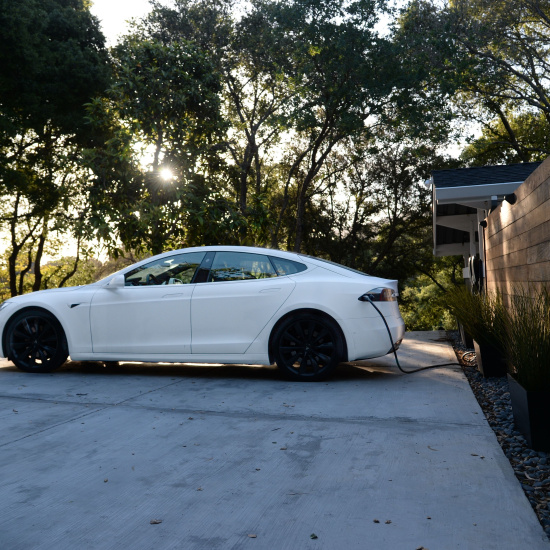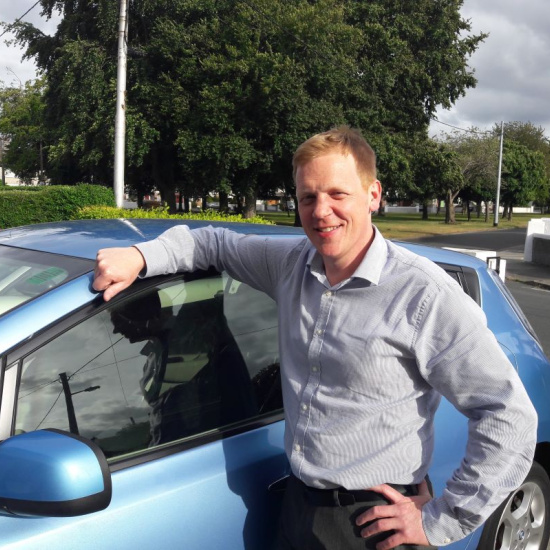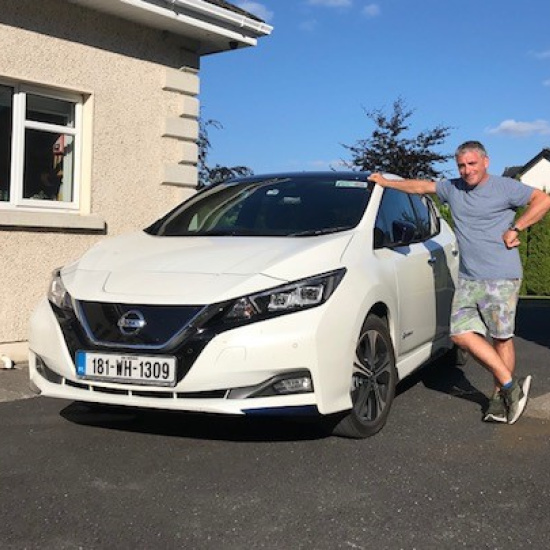EV Asset Finance Options
Conor Edgely, Programme Executive in Electric Vehicles at SEAI, details the finance options available to everyone to get the best deal for purchasing an EV, whatever your personal circumstances.
When it comes to asset finance options for an Electric Vehicle, there is no 'one-size-fits-all' solution that suits everyone. The best solution always depends on individuals' circumstances. If it's not obvious to you which route you should take, we want to help you understand the differences between those options to ensure you get the best deal for you. Remember, whichever route you decide on, make sure you shop around first to get the best deal.
"How much will you take for cash?" We all love a good deal. But the days of striking a deal for cash may be behind us now. These days dealers prefer a finance deal to a cash deal. You sign on a line and the cash is delivered straight into their bank account. No trips to the bank and there are less risks having no cash on the premises. They might even make a little commission on it too. Dealers can offer their customers a wide range of finance options which can suit your own personal circumstances.
Personal Loan
A personal loan delivers a one-time payment to the borrower to be spent as they wish. That amount plus interest is repaid in regular, monthly instalments over the lifetime of the loan, known as its "term". This might suit if you would like to borrow more than the value of the vehicle's asking price or to consolidate debts. If your vehicle was funded by an unsecured personal loan and someday you needed to get another loan for something like home improvements, you could be restricted by how much you can borrow. A secured loan has less risk attached to it. In the same situation with a secured loan, you would be able to borrow more with a separate loan for your home improvements.
HP
Hire Purchase (HP) is similar to a traditional bank loan. It's a one-time fixed payment* for an agreed term. When I say fixed payment, there will often be a "document fee" or "admin fee" added to the first payment and possibly again at the last payment of the agreement. Where it differs from a traditional bank loan is that the loan is secured against the vehicle, in the same way a mortgage is secured against a house. A consequence of that is "if you can't pay, they'll take it away". In reality, lenders will go to great lengths to avoid that situation. If you are ever in doubt of making a payment, speak to your lender before your next payment is due. You might be surprised how accommodating they can be. The thought of a secured loan can be a barrier for some, but it has its benefits.
The car will be registered in your name from the beginning and the title will transfer to you once the final payment is made.
PCP
Personal Contract Purchase (PCP) offers buyers a lower monthly payment compared to a HP contract over the same period. PCP divides the cost of the vehicle into three sections: the deposit, the monthly payment, and the optional final payment. How can the final payment be optional? Well, with PCP the buyer has options at the end of the agreement and we will look at those options shortly.
Before signing up, an annual mileage limit is agreed. This is necessary to establish how much the dealer thinks your car will be worth at the end of the agreement. This value will be referred to as Guaranteed Minimum Future Value (GMFV). GMFV guarantees that the vehicle will be worth at least the amount that was set out at the start of the agreement. That value is deducted from the balance to finance and the buyer pays monthly for the balance plus interest.
At the end of an agreement, the buyer has 4 options:
-
Option to purchase the vehicle by paying the GMFV to the lender.
-
Trade in the vehicle. This is the same as option 1 but if the vehicle is worth more than the GMFV (and it should be) the value of GMFV goes to the lender and anything above that can go towards the new vehicle. The Dealer will often handle all of that on your behalf.
-
Hand the keys back and walk away. There is no obligation to purchase. If for some reason the car is worth less than the GMFV, the buyer is not responsible for the shortfall.
-
Refinance the final payment. If the buyer doesn't have the full amount of the GMFV to hand and would like to keep the car, simply speak to the lender and refinance the final payment on HP. Shop around with other lenders too to make sure you are getting a good deal.
If the vehicle is handed back with more than the agreed mileage, there will be a price per km charged. This price per km will be outlined in the contract that is signed at the beginning of the agreement. Similarly, if the car is handed back with damage that could be considered beyond "reasonable wear and tear", there could be a charge attached to that too.
PCH
Personal Contract Hire (PCH), sometimes referred to as 'Personal Lease' is less common but growing in popularity. PCH customers pay a deposit (usually 3 months rental) and a fixed monthly payment. The monthly cost is determined by the contract term and the agreed contract mileage, like PCP. PCH differs from PCP for a few reasons. Your monthly payment includes the road tax, there is an option to add a maintenance contract and with PCH at the end of the agreement there is no option to purchase. You hand the keys back and start again or walk away.
A shared benefit of PCP and PCH is the buyer is protected from the risk of depreciation. The value of that protection is often underrated. The resale value of a vehicle is not always within your control. External factors such as recessions, safety recalls and retail price drops will impact resale values. An extreme example is when the car manufacturers Saab and Rover declared bankruptcy, the value of their vehicles was wiped out overnight. People were stuck with their vehicles because they were suddenly worth a fraction of what they owed on their loans. That led to the introduction of a GMFV in PCP agreements, to protect the consumer.
Car Club
Car clubs are becoming increasingly popular, growing in line with the ethos of mobility as a service. You may have noticed a car club vehicle parked in your neighbourhood. Forget negotiating a good deal, forget buying the car at all. PCP and PCH are often sold as, "you are only paying for the time you have the car". Car clubs take this to the next level by enabling members to pay for the time they are using the vehicle, down to the hour. Vehicles can be hired by the hour, day, week, or month.
Not only do car clubs offer the flexibility of time, but there is also flexibility in the vehicle too. One day you might only need a small hatchback, while another day you might need a larger saloon or maybe even a van. You only pay for the type of vehicle you need for as long as you need it. Booking vehicles can be done quickly and efficiently via an app. You could get more exercise as a car club member as you will likely walk from home to the club car and might even consider more active methods of transport. Car club members may have to pay for annual membership, but they will avoid many costs associated with ownership such as maintenance, road tax and even insurance.
While car clubs offer an affordable alternative to vehicle ownership, just be mindful of mileage limits to avoid excess mileage penalties.
If you need more information on which option is right for you, we recommend considering getting independent financial advice to help steer you in the right direction.
Learn more about EV finance options


